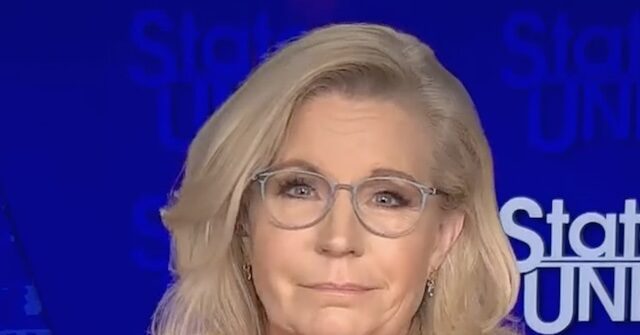Former Representative Liz Cheney, a prominent critic of Donald Trump, made headlines during her appearance on CNN’s “State of the Union” by asserting that Trump is unfit to serve as president. Cheney’s claims were particularly severe, labeling Trump as unstable, depraved, and cruel. She emphasized that the ongoing revelations from former senior officials of his administration serve as a stark reminder of his unsuitability for the presidency. Cheney contended that these officials’ statements highlight a troubling truth about Trump, suggesting that his behavior reflects a core character that is chaotic, erratic, and lacking moral accountability. This perspective underlines her belief that the American public is capable of recognizing the dangers posed by Trump’s leadership.
According to Cheney, the Trump campaign is well aware of the potential damage caused by these testimonials from within his administration. She argued that in response, they create narratives that are disconnected from reality to discredit these voices and protect Trump’s image. The former congresswoman pointed out that the public is increasingly aware of the implications of having someone like Trump in a position of power, especially when respected figures such as General John Kelly openly criticize him. This reinforces her assertion that Trump’s erratic nature is not hidden from the American people, who are beginning to understand the ramifications of his behavior at the highest office.
Cheney contrasted Trump’s alleged qualities with those of current Vice President Kamala Harris, whom she has had direct interactions with. She praised Harris for her effort to govern with unity and inclusivity, describing her as someone who listens to diverse perspectives and is committed to doing what is right for the country. This comparison served to underscore Cheney’s argument that leadership requires a foundational sense of empathy and responsibility, which she argues is absent in Trump. Cheney’s confidence in Harris’s approach further paints a picture of a leadership style that prioritizes collaboration and understanding, in stark opposition to the divisive nature of Trump’s presidency.
In her remarks, Cheney expressed a specific desire for the media to showcase more footage of Trump, especially in the context of the approaching election. She believes that increased visibility of Trump’s behavior will serve as a cautionary tale for voters, reminding them of the urgency of not electing someone perceived as unfit for the role. Cheney’s plea implies that public discourse can be influenced significantly by the images and messages disseminated through media outlets, reinforcing the idea that the electorate should make informed choices based on a candidate’s track record and character.
The broader implications of Cheney’s analysis illuminate a critical conversation surrounding the character traits necessary for effective leadership. Her characterization of Trump raises fundamental questions about the qualities that are desirable in a president, including stability, morality, and compassion. By framing her critique in this way, Cheney not only seeks to rally opposition against Trump but also advocates for a political discourse rooted in ethical considerations. This perspective emphasizes the importance of evaluating leaders based on their principles and the potential social impact of their actions.
In summary, Liz Cheney’s statements reflect a growing concern about the suitability of Donald Trump for the presidency, rooted in observations of his behavior and the testimonies of former officials. Her contrasting views on leadership, particularly in light of Vice President Kamala Harris’s approach, point toward a vision of governance characterized by inclusivity and moral integrity. Cheney’s call for greater media exposure of Trump acts as both a warning and a mobilization effort to encourage voters to critically assess their choices as the elections approach. Ultimately, her comments resonate with ongoing discussions about the nature of leadership and the values that should guide the highest office in the land.

